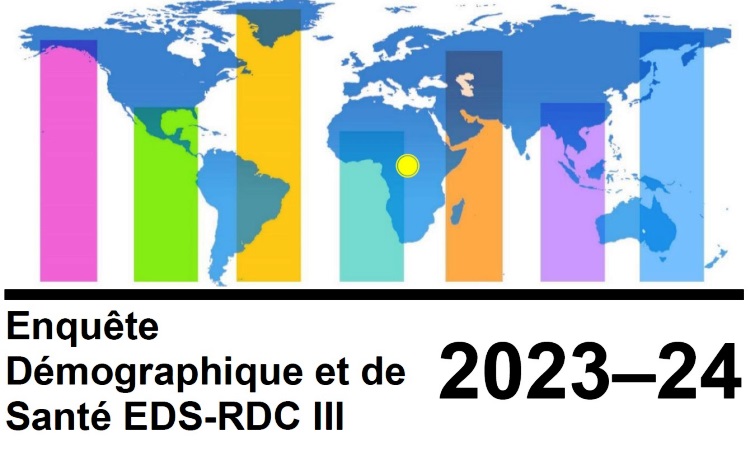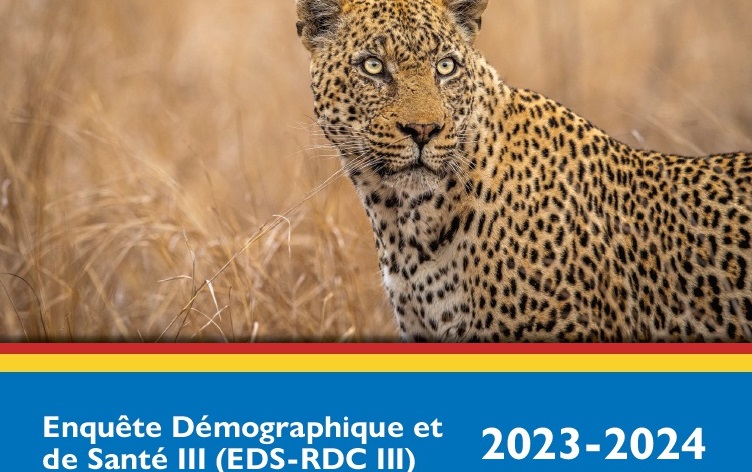Brady Madioko Makanzu, Jean-Robert Makulo, Madone Ndona Mandina, Dimosi Roger Wumba, Murielle Mashi Longokolo, Hippolyte Situakibanza, Ossam Odio, Donat Sonzi Mangala, Constantin Mihigo Bashengezi, Benjamin Kabwe Mwilambwe, Gilbert Kabanda Kurhenga, Benjamin Longo-Mbenza, Roger Mwimba Mbungu
Brady Madioko Makanzu, Gilbert Kabanda Kurhenga, Benjamin Longo-Mbenza, Department of Cardiology, Kinshasa University Hospital, Kinshasa, DR Congo, Kinshasa University Hospital, Kinshasa 11, Congo Jean-Robert Makulo, Nephrology Unit, Kinshasa University Hospital, Kinshasa, Democratic Republic of the Congo, Kinshasa 11, Kinshasa, Congo
Madone Ndona Mandina, Ossam Odio, Department of Infectious Diseases, Kinshasa University Hospital, Kinshasa, DR Congo, Kinshasa 11, Congo Dimosi Roger Wumba, Department of Tropical Medicine, University of Kinshasa, Kinshasa 11, Congo Murielle Mashi Longokolo, Department of Infectious Diseases, University of Kinshasa Hospital, Kinshasa 11, Congo
Hippolyte Situakibanza, Department of Tropical Medicine and Infectious Disease, School of Medicine, University of Kinshasa, Kinshasa 11, Congo Donat Sonzi Mangala, COVID-19 Treatment Center, Kinshasa University Hospital, Kinshasa, Kinshasa 11, Congo
Constantin Mihigo Bashengezi, Centre de Recherche en Phytothérapie, Pharmacopée Africaine et Technologie pharmaceutique, Kinshasa 11, Congo
Benjamin Kabwe Mwilambwe, Intensive Care Unit, Kinshasa University Hospital, Kinshasa 11, Congo Roger Mwimba Mbungu, Department of Gynecology and Obstetrics, Kinshasa University Hospital, Kinshasa 11, Congo
ORCID number: Brady Madioko Makanzu (0000-0001-9167-3822); Jean-Robert Makulo (0000-0001-5517-3281); Benjamin Longo-Mbenza (0000-0002-5164-6296).
Author contributions: Makulo JR, Mandina MN, Makanzu BM, and Longo-Mbenza B conceptualized the research; Makanzu BM, Longokolo M, Odio O, Bepouka IB, and Mangala D screened patients and acquired clinical data; Makulo JR and Makanzu BM wrote the first verion of the paper; All the authors have read and approved the final manuscript; Kabanda KG applied for and obtained the funds for this research project; Makulo JR, Mandina MN, and Longo-Mbenza B supervised the whole process of the study.
Institutional review board statement: The present clinical trial is an adaptation of the standard protocol validated by the WHO for clinical trials of herbal medicines used in the treatment of COVID-19 (WHO Master Protocol Version number 1.0; 09 June 2020). The access to patients was granted by the DR Congo Ministry of Research (444/MIN.RSIT/CABMIN/JMK/2020). Our research projects on COVID-19 received the approval of the Ethics Committee of the Kinshasa School of Public Health of the University of Kinshasa (ESP/CE/038/2021).
Clinical trial registration statement: ISRCTN: ISRCTN16254682.
Informed consent statement: All patients understood and agreed to the study protocol and voluntarily signed the informed consent form.
Conflict-of-interest statement: All the authors report no relevant conflicts of interest for this article.
Data sharing statement: No additional data are available. CONSORT 2010 statement: The authors have read the
CONSORT 2010 statement, and the manuscript was prepared and revised according to the CONSORT 2010 statement.
Open-Access: This article is an open-access article that was selected by an in-house editor and fully peer-reviewed by external reviewers. It is distributed in accordance with the Creative Commons Attribution NonCommercial (CC BY-NC 4.0) license, which permits others to distribute, remix, adapt, build upon this work non-commercially, and license their derivative works on different terms, provided the original work is properly cited and the use is non-commercial. See: https://creativecommons.org/Licenses/by-nc/4.0/
Corresponding author: Brady Madioko Makanzu, MD, Doctor, Department of Cardiology, Kinshasa University Hospital, Kimwenza Road, Lemba Municipality, Kinshasa 11, Congo. bmaknzu@gmail.com
Received: December 10, 2023 Revised: April 5, 2024 Accepted: April 19, 2024 Published online: June 25, 2024 Processing time: 188 Days and 18.4 Hours
Abstract
BACKGROUND QTc interval prolongation with an increased risk of torsade de pointes (Tsd) has been described in coronavirus disease 2019 (COVID-19) patients treated with hydroxychloroquine (HCQ) and azithromycin (AZI) in Western countries. In the DR Congo, few studies have evaluated the safety of this association or proposed new molecules. AIM To determine the incidence of QTc prolongation and Tsd in COVID-19 patients treated with HCQ-AZIs vs doubase C (new molecule). METHODS In present randomized clinical trial, we have included patients with mild or moderate COVID-19 treated with either HCQ-AZI or doubase C. Electrocardiogram (ECG) changes on day 14 of randomization were determined based on pretreatment tracing. Prolonged QTc was defined as ≥ 500 ms on day 14 or an increase of ≥ 80 ms compared to pretreatment tracing. Patients with cardiac disease, those undergoing other treatments likely to prolong QTc, and those with disturbed ECG tracings were excluded from the study. RESULTS The study included 258 patients (mean age 41 ± 15 years; 52% men; 3.4% diabetics, 11.1% hypertensive). Mild and moderate COVID-19 were found in 93.5% and 6.5% of patients, respectively. At baseline, all patients had normal sinus rhythm, a mean heart rate 78 ± 13/min, mean PR space 170 ± 28 ms, mean QRS 76 ± 13 ms, and mean QTc 405 ± 30 ms. No complaints suggesting cardiac involvement were reported during or after treatment. Only four patients (1.5%) experienced QTc interval prolongation beyond 500 ms. Similarly, only five patients (1.9%) had an increase in the QTc interval of more than 80 ms. QTc prolongation was more significant in younger patients, those with high viral load at baseline, and those receiving HCQ-AZI (P < 0.05). None of the patients developed Tsd. CONCLUSION QTc prolongation without Tsd was observed at a lower frequency in patients treated with HCQ-AZI vs doubase C. The absence of comorbidities and concurrent use of other products that are likely to cause arrhythmia may explain our results. Key Words: QTc prolongation, COVID-19, Doubase C, HCQ-AZT, Sub-Saharan Africa Core Tip: During the coronavirus disease 2019 (COVID-19) pandemic, western studies have shown the ineffectiveness and cardiotoxic effects of hydroxychloriquine and azithromycin (HCQ-AZI). In Africa, the heart toxicity of HCQ-AZI is little reported by cardiologists, and some African countries used these two molecules to treat COVID-19 patients. In the present study, we have evaluated the occurrence of prolongation of the QTc interval and torsade de pointes torsade in Congolese COVID-19 patients who received HCQ-AZI compared to doubase C, a herbal medicine with broad-spectrum antiviral activity. Citation: Madioko Makanzu B, Makulo JR, Ndona Mandina M, Wumba DR, Mashi Longokolo M, Situakibanza H, Odio O, Sonzi Mangala D, Mihigo Bashengezi C, Kabwe Mwilambwe B, Kabanda Kurhenga G, Longo-Mbenza B, Mwimba Mbungu R. Hydroxychloroquine-azithromycin, doubase C, and QTc prolongation in congolese patients with COVID-19: Myth or reality? World J Virol 2024; 13(2): 90668 URL: https://www.wjgnet.com/2220-3249/full/v13/i2/90668.htm DOI: https://dx.doi.org/10.5501/wjv.v13.i2.90668
[DOI: 10.5501/wjv.v13.i2.90668]


